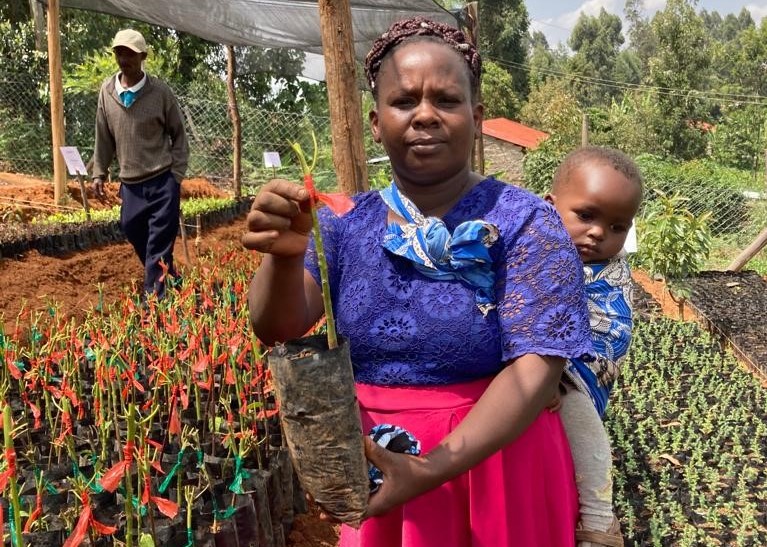1 June 2022, Rome – The experience of a forest farmers association in Kenya inspired by Swedish foresters’ experience and supported by Swedish aid organisations was today hailed as an example of what North-South partnership can achieve at a one-day event ahead of Stockholm+50.
The dialogue, co-hosted by the FAO-supported Forest and Farm Facility (FFF), the Swedish International Development Cooperation Agency (SIDA) and We Effect, heard how Kenyan forest farmers were inspired to set up the Farm Forestry Smallholder Producers Association of Kenya (FFSPAK) after a visit by Swedish foresters ten years ago.
Based on the Swedish experience of collective action, the aim of the association was to empower smallholder forest producers and help them join forces to protect forests and prosper.
“Whereas farmers in Kenya were very organised, that was not the case for the tree growers,” said Philip Kisoyan, FAO’s natural resources management officer in Kenya. “They didn’t have systems in place to collaborate across the sector, to market their products, and build resilience to the challenges of climate change.”
Business incubation improved communities’ livelihoods
With the support of SIDA, Swedish non-governmental organisation We Effect, AgriCord and FFF – the association has grown fast.
Member organizations of FFSPAK now include not just those representing tree growers, but also producers of honey, charcoal, bamboo and vegetables.
Having started with 4,500 members from six producer organizations from two Kenyan counties in 2012, the association now counts 40,000 members from 17 organizations across seven counties.
FFSPAK has helped its members develop their entrepreneurial capacities, diversify their production with forest and non-timber forest products and improve their value chains. We Effect and AgriCord developed tools for financial and gender assessment of the organisations. They have also trained farmers in sustainable production techniques, organisational development, gender equality and governance.
Smallholders have now increased their production capacity and market their goods collectively, enabling them to access new markets nationally. As a result, last year, FFSPAK’s work produced a rise in income for its members of between 46% and 65%. This has allowed members to develop systems for mobilising their own finance at village level.
And the progress for the sector has inspired young people to stay in and expand family businesses, with FFSPAK ensuring social protection to its members and championing the role that women can play.
Providing climate solutions and increasing resilience
As a large organisation whose members together manage over 100,000 hectares of land across Kenya, FFSPAK is now a key player in the national effort to mitigate climate change.
Kenya lost 6.5 % of its forest cover between 1990 and 2010 (around 241,000 hectares) and FFSPAK is now seen as the main actor in achieving the aim of the Constitution and Vision 2030 of recovering 10% of the country’s forest.
“We have been able to expand our outreach to an increasingly knowledgeable number of tree growers,” said Stella Mutai, Chairperson of FFSPAK and farmer of the Canaan Women Group in Bomet County. “By helping them to plant trees, we reduce the harsh impact of climate change and environmental degradation for a better well-being of our communities.”
FFSPAK has also been able to engage with government to influence policies such as the National Agro-Forestry strategy for Kenya.
“Our visibility has grown in the region, at country and global levels as well,” said Geoffrey Kololi Wanyama, CEO of FFSPAK.
Thanks to FFSPAK, some producers are looking to become totally self-sustaining, and there is still huge potential for FFSPAK to expand throughout the country.
“Long term investments and solid partnerships are needed to help scale up what has already been a strikingly successful North-South partnership,” said Sophie Grouwels, FAO Forestry Officer and Forest and Farm Facility coach.
The Forest and Farm Facility is a partnership between FAO, the International Institute for Environment and Development, the International Union for Conservation of Nature and AgriCord.
This story is developed by the Forest and Farm Facility and FAO Forestry
